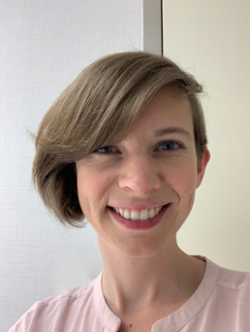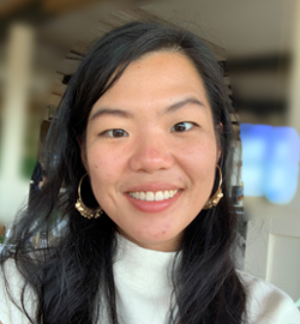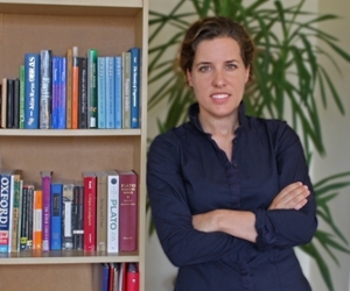2021-22 Mellon Public Scholarship Teaching Fellows
Laney Graduate School is pleased to announce the first cohort of Mellon Interventions Public Scholarship Teaching Fellows for the 2021-22 academic year.
Cara Curtis (Religion)
Bio:

Course Description
Title: REL200: Religion, Prisons, Social Justice (Religion & Contemporary Experience)
Time: Fall 2021
Although mass incarceration has gained significant public attention in recent years, the role of religion—in both enabling modern practices of imprisonment and in fostering resistance to them—is often overlooked. This class will examine how religion is intertwined with a variety of key elements in the landscape of incarceration in the United States: the origins of contemporary prisons, racial inequity, economic exploitation, the daily lives of those inside, and movements for both abolition and reform. Going beyond cursory understandings of religion as something that is “used” by any given actor in the criminal legal system, the course will aid students in developing their own nuanced perspectives on the ways that religious faith functions in, through, and against carceral practices in the contemporary United States.
In particular, this class will accomplish these goals by learning in collaboration with local community partners who are working actively at the intersection of religion and incarceration. From activists mobilizing faith communities for state policy change to theological educators supporting the reentry process, we will learn from these partners and in turn support their work via collaborative final projects. Religion in prison is a lived phenomenon; therefore, the best way to learn about it is in conversation with those who are involved and living it. Given this, we will also privilege hearing the perspectives of those who are/have been incarcerated and those directly impacted by incarceration.
Cynthia Guo (Psychology)
Bio:

Cynthia Guo is a Ph.D. Candidate in the Department of Psychology, with a concentration in Developmental Science. She received a B.A. in Psychology from University of California, Los Angeles (UCLA) with highest honors. Her research examines the social and cultural factors that contribute to moral decision-making, and her dissertation research investigates the motivation behind human deception from a developmental perspective. She adopts an interdisciplinary approach in her teaching, with the goal of bridging the disciplinary gap between humanities and the social sciences.
Course Description
Title: PSYC385: Cultural Psychology
Time: Fall 2021
What is culture? How does culture influence the way we think and behave? How is culture represented, impacted, and transformed in the digital age?
This course will introduce you to the field of cultural psychology, and explore the role of cultural meanings, practices, and institutions on human psychology. We will discuss how culture emerges in human development and examine how the same psychological processes that give rise to rich cultural practices also bear negative consequences on our society, such as stereotype and prejudice. We will also explore specific topics on how human culture is transformed through digital devices and represented on social media.
Through the course, you will learn to critically examine human behaviors in the contexts of diverse cultural beliefs, to reflect on your own upbringings through a cultural lens, and to gain an appreciation for cultures other than your own.
Belén Pueyo Ibáñez (Philosophy)
Bio:

Her doctoral dissertation, Moral Inquiry Beyond Objectivism and Subjectivism: Collective Deliberation and the Sense of Community, is aimed at identifying the necessary conditions under which a process of intersubjective discourse can be practically effective as a method of moral inquiry. Her research, interdisciplinary in nature, is informed by an array of sources from different disciplines, mainly philosophy, but also psychology, sociology, and anthropology.
Course Description
Title: On the Nature of Human Relationships
Time: Spring 2022
This course invites students to reflect on the nature of human relationships and related issues such as public deliberation, democracy, peace and conflict, tolerance, and solidarity, among others. The course will be structured around four problem areas: being with others, thinking with others, acting with others, and feeling with others. The approach to these questions will be partly theoretical and partly practical. Throughout the semester, students will read a variety of texts, mainly philosophical but also scientific, from different schools of thought from the 19th century to the present. Students will have the opportunity to develop their own ideas and thoughts about these problems on several assignments that will enable them, not only to become conversant with these issues but also to improve their comprehension abilities, analytical skills, critical thinking, and expressive competence. Lectures, class discussions, and individual and group exercises will be supplemented by a visit to an organization based in Atlanta devoted to the advancement of democracy and human rights. At the end of the semester, students will produce a series of podcasts in which they will reflect on the role and activities of this organization in connection with the theoretical questions explored throughout the semester. This course is being taught with the support of the Mellon Humanities PhD Interventions Project.